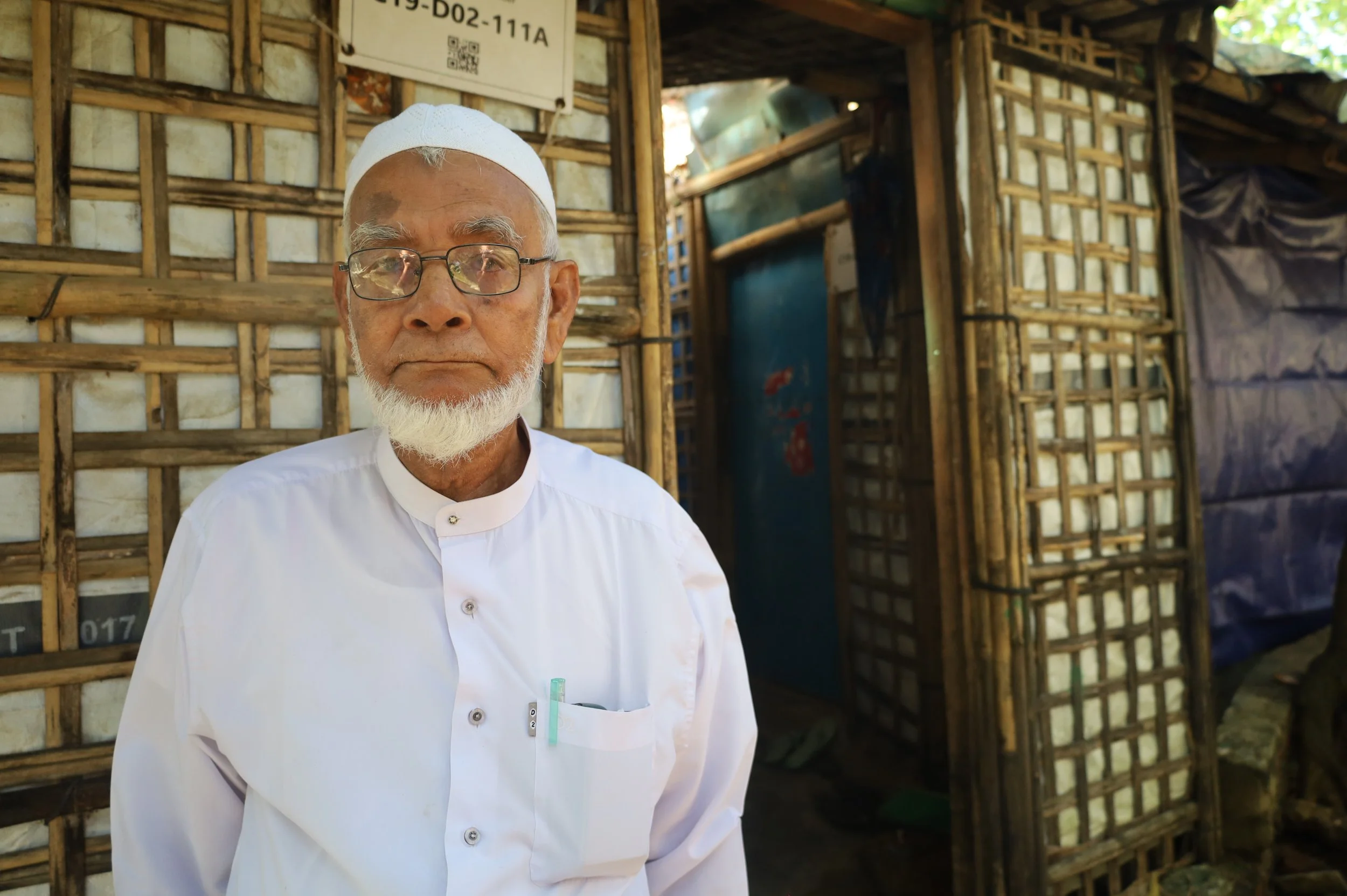Growing self-sufficiency in a flourishing home garden
Above: Homestead gardening training has provided a positive boost to Naju’s self sufficiency. Photo: Mutasim Billah/Oxfam
Naju Hossain, a 55-year-old refugee from Myanmar, lives with his three sons and two daughters in a displaced persons camp in Cox’s Bazar, Bangladesh. Despite his background in agriculture, finding opportunities related to cash for work has been a struggle, and he has long faced challenges in meeting his family’s needs.
In hopes of creating a more sustainable life for his family, Naju became a project participant in a homestead gardening and pit composting program, implemented by Mukti Cox’s Bazar through the Australian Humanitarian Partnership response in Bangladesh. Recognising his dedication and willingness to learn, project staff identified him through a door-to-door survey and vulnerability assessment. The activity would mark a pivotal moment in Naju’s journey to self-reliance.
Reflecting on his experience, Naju shared that while he had worked in agriculture back in Myanmar, he lacked knowledge about advanced cultivation techniques. This gap in understanding limited his productivity, with his efforts yielding just enough for household consumption, leaving no surplus for income generation. But after completing a two-day training and receiving essential resources like seeds, organic fertiliser, fencing, bamboo, and eco-friendly traps, Naju was able to apply new techniques that transformed his home garden into a source of both sustenance and income.
With improved cultivation methods, Naju’s garden now flourishes, providing his family with a reliable source of fresh vegetables and a newfound level of economic stability. His efforts have allowed him to sell surplus produce, generating an income of 7,350 BDT (AUD 92) from Rabi season vegetables (November to March). With part of these earnings, he purchased seven chickens to further diversify his household’s resources and invested the rest into supporting his family’s daily needs. This transformation has not only strengthened his family’s nutrition and independence but also significantly reduced their reliance on external assistance.
Naju’s success has earned him the respect of his neighbours, who frequently seek his guidance on vegetable cultivation. Inspired by his achievements, many community members have started their own gardens, showcasing the ripple effect of the project’s impact.
“The training on vegetable cultivation has significantly enhanced my agricultural skills, enabling me to produce surplus vegetables and improve our family’s food security,” says Naju.
Naju Hossain’s journey exemplifies the power of targeted support and the resilience of those striving for a better future. His commitment to his garden and family demonstrates the transformative effect of such initiatives, not only on individuals but on entire communities.
This activity was implemented by Mukti Cox’s Bazar and Oxfam, with Australian Government support through the Australian Humanitarian Partnership. The activities were implemented by the CARE-led consortium with Oxfam and Plan International.


